July 5 stands as one of history’s most eventful days, witnessing the rise and fall of empires, groundbreaking discoveries, and moments that shaped our modern world across centuries of human achievement.

Politics and Government Events on July 5
1962 – Algeria Gains Independence from France
The official independence of Algeria was proclaimed after an eight-year-long war with France. The announcement marked the end of French colonial rule over the North African nation.
Celebrations erupted across Algeria as citizens embraced their newfound sovereignty. The independence struggle had cost hundreds of thousands of lives and transformed both nations forever.
1971 – Twenty-sixth Amendment Certified
The Twenty-sixth Amendment to the United States Constitution was formally certified by President Richard Nixon. The amendment lowered the voting age from 21 to 18 years nationwide.
Young Americans gained unprecedented political power through this constitutional change. The amendment reflected growing recognition of youth participation in democracy during the Vietnam War era.
1950 – Law of Return Passes in Israel
The Knesset of Israel passed the Law of Return, granting all Jews the right to immigrate to the Land of Israel. This landmark legislation established fundamental principles of Israeli citizenship.
The law created pathways for Jewish immigration from around the world. It became a cornerstone of Israeli identity and immigration policy for decades to come.
1975 – Cape Verde Gains Independence
Cape Verde gained its independence from Portugal after centuries of colonial rule. The island nation celebrated its freedom alongside other African liberation movements.
Portuguese colonial authorities transferred power to local leaders peacefully. Cape Verde embarked on its journey as a sovereign nation in the Atlantic Ocean.
1977 – Pakistan Military Coup

The Pakistan Armed Forces under Muhammad Zia-ul-Haq seized power in Operation Fair Play. Zulfikar Ali Bhutto, the first elected Prime Minister of Pakistan, was overthrown.
The military coup began eleven years of martial law in Pakistan. Democratic institutions were suspended as the country entered a prolonged period of military rule.
2024 – Keir Starmer Becomes British Prime Minister

Keir Starmer was appointed Prime Minister by Charles III following Labour’s general election victory. He became the first Labour prime minister since Gordon Brown in 2010.
Starmer’s appointment marked a significant shift in British politics after years of Conservative rule. His victory represented the first Labour general election win since Tony Blair in 2005.
Military and Naval History on July 5
1943 – Operation Citadel Begins
German forces launched a massive offensive against the Soviet Union at the Battle of Kursk. Operation Citadel represented Germany’s last major offensive on the Eastern Front.
The battle would become the largest tank engagement in military history. Soviet forces ultimately repelled the German advance, marking a turning point in World War II.
1943 – Allied Fleet Sails for Sicily
An Allied invasion fleet sailed for Sicily in preparation for Operation Husky. The massive naval operation would commence the Allied invasion of Italy.
Hundreds of ships carried troops and equipment across the Mediterranean Sea. The operation marked the beginning of the Italian campaign in World War II.
1941 – Operation Barbarossa Advances
German troops reached the Dnieper River during Operation Barbarossa’s early stages. The Wehrmacht continued its rapid advance into Soviet territory.
The German advance captured vast territories and hundreds of thousands of Soviet prisoners. However, the invasion’s momentum would soon encounter fierce Soviet resistance.
1950 – Battle of Osan
American and North Korean forces clashed for the first time in the Korean War. Task Force Smith engaged North Korean troops in this initial confrontation.
The battle marked America’s first ground combat in the Korean conflict. American forces faced overwhelming odds against well-equipped North Korean units.
Science and Discovery Milestones on July 5
1996 – Dolly the Sheep Cloned

Dolly the sheep became the first mammal cloned from an adult cell. Scottish scientists achieved this groundbreaking feat at the Roslin Institute.
The successful cloning revolutionized genetic research and sparked global debates about biotechnology. Dolly’s creation opened new possibilities for medical research and treatment.
2016 – Juno Probe Reaches Jupiter

The Juno space probe arrived at Jupiter and began a 20-month survey of the planet. NASA’s mission aimed to study Jupiter’s composition and magnetic field.
The probe’s arrival marked a major milestone in planetary exploration. Scientists gathered unprecedented data about the solar system’s largest planet.
2003 – SARS Outbreak Contained
The World Health Organization announced that the 2002–2004 SARS outbreak had been contained. Global health authorities successfully coordinated international response efforts.
The containment represented a victory for international health cooperation. Public health measures and scientific research had prevented a potential pandemic.
2009 – Anglo-Saxon Gold Hoard Discovered

The largest hoard of Anglo-Saxon gold ever discovered in Britain was found near Lichfield, Staffordshire. The treasure consisted of more than 1,500 items.
Archaeologists uncovered artifacts dating back over 1,000 years. The discovery provided invaluable insights into Anglo-Saxon culture and craftsmanship.
Cultural and Arts Events on July 5
1954 – Elvis Presley Records First Single

Elvis Presley recorded his first single, “That’s All Right,” at Sun Records in Memphis, Tennessee. The recording session launched the career of the future King of Rock and Roll.
Producer Sam Phillips recognized Presley’s unique sound immediately. The song would transform popular music and establish Elvis as a cultural icon.
1946 – First Modern Bikini Modeled
Micheline Bernardini modeled the first modern bikini at a swimming pool in Paris. The revealing swimsuit created a sensation in post-war fashion.
Designer Louis Réard named the bikini after the Bikini Atoll atomic tests. The garment challenged conservative fashion norms and became a symbol of liberation.
1915 – Liberty Bell’s Final Journey
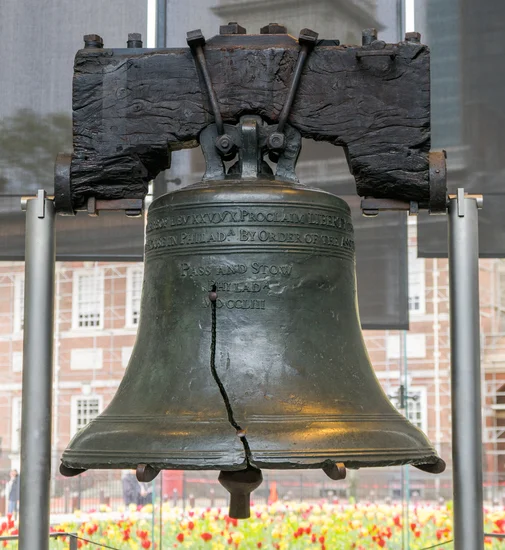
The Liberty Bell left Philadelphia by special train for the Panama–Pacific International Exposition. This marked the last trip outside Philadelphia that custodians would permit.
The bell’s journey attracted thousands of spectators along the railway route. Officials decided future travel risks were too great for the fragile historic artifact.
Religious and Social Events on July 5
1973 – Juvénal Habyarimana Seizes Power in Rwanda
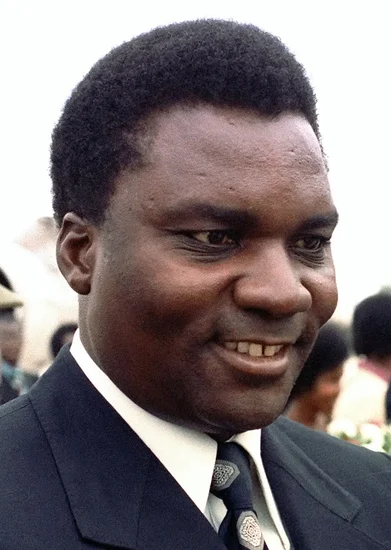
Juvénal Habyarimana seized power over Rwanda in a military coup d’état. The general’s takeover would reshape Rwandan politics for decades.
Habyarimana’s rule established a military government that would control Rwanda for over twenty years. His policies would have lasting consequences for ethnic relations in the country.
1989 – Iran-Contra Affair Sentencing
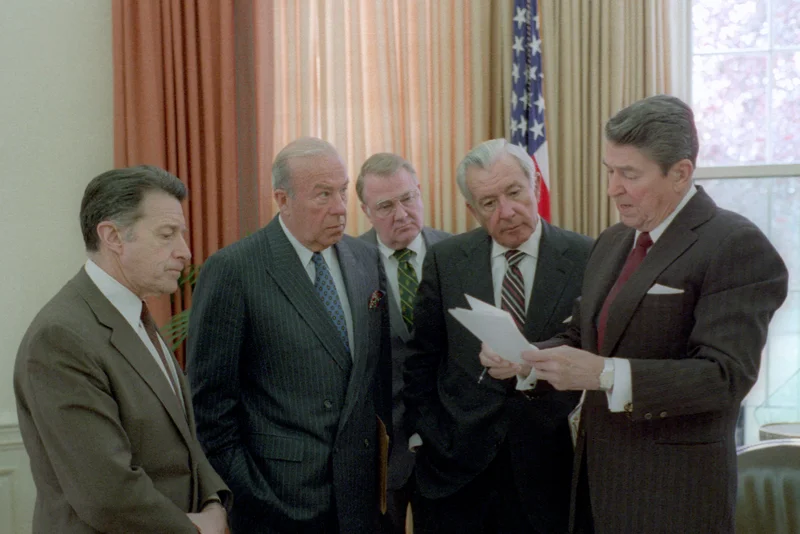
Oliver North was sentenced to a three-year suspended prison term for his role in the Iran-Contra affair. U.S. District Judge Gerhard A. Gesell also imposed probation and community service.
The sentencing concluded a major political scandal of the 1980s. North’s convictions were later overturned on appeal, sparking continued controversy.
2009 – Ürümqi Riots Erupt

A series of violent riots broke out in Ürümqi, the capital city of Xinjiang Uyghur Autonomous Region. Ethnic tensions erupted into widespread civil unrest.
The riots highlighted ongoing tensions between Uyghur and Han Chinese populations. Chinese authorities implemented extensive security measures to restore order.
Business and Economic Events on July 5
1994 – Jeff Bezos Founds Amazon

Jeff Bezos founded Amazon, initially as an online bookstore. The company would revolutionize e-commerce and transform global retail.
Bezos started the company in his garage with a vision for internet commerce. Amazon would eventually become one of the world’s largest corporations.
1937 – Spam Introduced to Market
Spam, the luncheon meat, was introduced to the market by Hormel Foods Corporation. The canned meat product became a staple of American cuisine.
The convenient protein source gained popularity during World War II. Spam would become a global phenomenon, particularly in Pacific island nations.
1999 – Taliban Trade Sanctions Imposed

U.S. President Bill Clinton imposed trade and economic sanctions against the Taliban regime in Afghanistan. The sanctions targeted the regime’s human rights violations.
The economic measures aimed to pressure the Taliban on women’s rights and terrorism. The sanctions represented growing international concern about Taliban policies.
Transportation and Infrastructure on July 5
1970 – Air Canada Flight 621 Crashes

Air Canada Flight 621 crashed in Brampton, Ontario, Canada, killing all 109 people on board. The tragic accident shocked the Canadian aviation industry.
Investigators worked to determine the cause of the devastating crash. The disaster led to improved safety protocols in Canadian aviation.
2012 – The Shard Inaugurated in London

The Shard in London was inaugurated as the tallest building in Europe. The 310-meter skyscraper transformed London’s skyline dramatically.
The mixed-use tower housed offices, restaurants, hotels, and residential units. The Shard became an iconic symbol of modern London architecture.
1973 – Kingman Arizona Explosion
A boiling liquid expanding vapor explosion occurred in Kingman, Arizona, during propane transfer operations. The blast killed eleven firefighters responding to the initial fire.
The tragedy highlighted dangers associated with hazardous material transportation. Safety protocols for propane handling were subsequently strengthened nationwide.
Sports and Recreation on July 5
1975 – Arthur Ashe Wins Wimbledon

Arthur Ashe became the first black man to win the Wimbledon singles title. His victory broke racial barriers in professional tennis.
Ashe’s triumph inspired generations of minority athletes worldwide. The achievement represented a milestone in both sports and civil rights history.
1980 – Björn Borg Wins Fifth Consecutive Wimbledon

Swedish tennis player Björn Borg won his fifth consecutive Wimbledon final. He became the first male player to achieve this remarkable feat.
Borg’s dominance on grass courts established him as tennis royalty. His five consecutive victories from 1976-1980 remain a legendary achievement.
1987 – LTTE First Suicide Attack
The LTTE used suicide attacks against the Sri Lankan Army for the first time. The Black Tigers were born as a specialized unit.
This tactical development changed the nature of the Sri Lankan Civil War. Suicide attacks would become a tragic hallmark of the conflict.
Notable Births on July 5
1911 – Georges Pompidou, French President
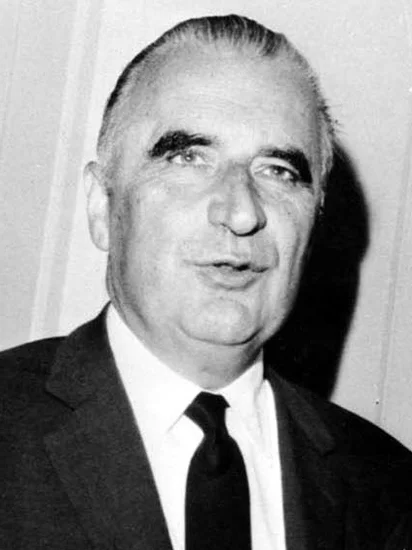
Georges Pompidou was born in France, destined to become the nation’s 19th President. His early life in rural France shaped his political perspectives.
Pompidou would serve as President from 1969 until his death in 1974. His leadership guided France through significant modernization and economic growth.
1940 – Chuck Close, American Artist

Chuck Close was born in Monroe, Washington, beginning a journey toward artistic greatness. His childhood struggles with learning disabilities influenced his unique approach to art.
Close would become renowned for his photorealistic portraits and innovative techniques. His work challenged traditional concepts of portraiture and representation.
1958 – Bill Watterson, Cartoonist

Bill Watterson was born in Washington, D.C., future creator of the beloved comic strip Calvin and Hobbes. His artistic talents emerged early in childhood.
Watterson would create one of the most celebrated comic strips in history. Calvin and Hobbes captured the imagination of readers worldwide.
1963 – Edie Falco, American Actress

Edie Falco was born in New York City, beginning her path to television stardom. Her Brooklyn upbringing influenced her later dramatic performances.
Falco would achieve fame starring in The Sopranos and Nurse Jackie. Her powerful performances earned multiple Emmy Awards and critical acclaim.
1994 – Shohei Ohtani, Japanese Baseball Player

Shohei Ohtani was born in Oshu, Japan, destined to revolutionize baseball. His exceptional athletic abilities manifested from an early age.
Ohtani would become the first player since Babe Ruth to excel as both pitcher and hitter. His unique two-way talents captivated baseball fans globally.
1985 – Megan Rapinoe, American Soccer Player

Megan Rapinoe was born in Redding, California, beginning her journey to soccer stardom. Her competitive spirit emerged through youth athletics.
Rapinoe would become a World Cup champion and Olympic gold medalist. Her activism and leadership extended far beyond the soccer field.
Notable Deaths on July 5
1945 – John Curtin, Australian Prime Minister
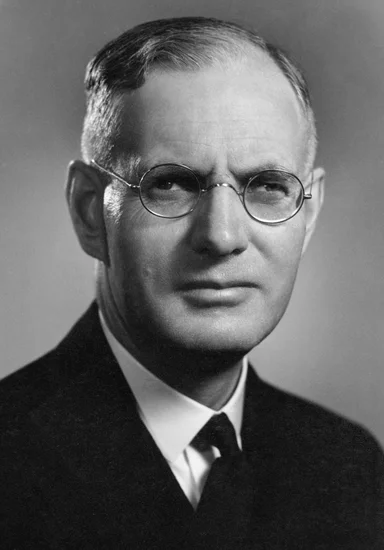
John Curtin, the 14th Prime Minister of Australia, died after leading his nation through World War II. His wartime leadership proved crucial to Australia’s survival.
Curtin had guided Australia through its darkest hours during the Pacific War. His death marked the end of an era in Australian politics.
2002 – Ted Williams, Baseball Legend

Ted Williams, the legendary American baseball player, died at age 83. The Boston Red Sox outfielder was the last player to hit .400 in a season.
Williams served as a fighter pilot in both World War II and Korea. His dedication to both baseball and military service made him an American icon.
2021 – Richard Donner, Film Director

Richard Donner, the acclaimed American film director, died at age 91. His blockbuster films defined adventure cinema for generations.
Donner directed Superman, The Goonies, and the Lethal Weapon franchise. His storytelling abilities brought comic book heroes to life on screen.
1969 – Walter Gropius, German Architect
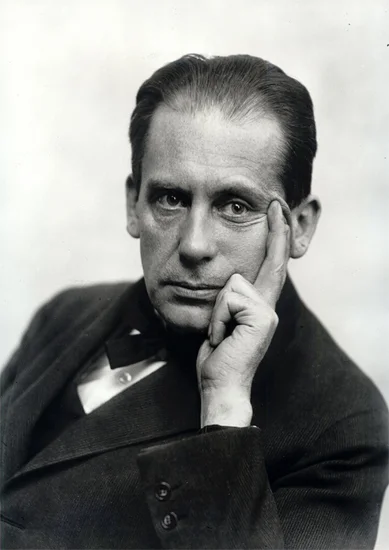
Walter Gropius, the pioneering German architect, died in Boston at age 86. His revolutionary designs transformed modern architecture fundamentally.
Gropius founded the Bauhaus school, which influenced design worldwide. His architectural philosophy emphasized function and simplicity over ornamentation.
2015 – Yoichiro Nambu, Nobel Prize-Winning Physicist

Yoichiro Nambu, the Japanese-American physicist, died at age 94. His groundbreaking work in particle physics earned him the Nobel Prize.
Nambu’s research on spontaneous symmetry breaking revolutionized theoretical physics. His discoveries laid foundations for the Standard Model of particle physics.
Holidays and Observances on July 5
Independence Day (Algeria)
Algeria celebrates its independence from France, commemorating the end of eight years of warfare. The holiday marks one of Africa’s most significant liberation movements.
Citizens across Algeria participate in parades and cultural celebrations. The day represents triumph over colonial rule and the birth of modern Algeria.
Independence Day (Cape Verde)
Cape Verde celebrates its independence from Portugal, marking the end of centuries of colonial rule. The island nation gained sovereignty through peaceful negotiations.
Cape Verdeans worldwide celebrate their cultural heritage and national identity. The holiday emphasizes the country’s unique position in the Atlantic Ocean.
Constitution Day (Armenia)
Armenia observes Constitution Day, commemorating the adoption of its fundamental law. The constitution established democratic principles after Soviet independence.
The holiday celebrates Armenian sovereignty and democratic institutions. Citizens reflect on their nation’s progress toward constitutional democracy.
Tynwald Day (Isle of Man)

The Isle of Man observes Tynwald Day, celebrating one of the world’s oldest continuous parliaments. The ceremony takes place at Tynwald Hill in St. John’s.
The ancient parliament has met for over 1,000 years without interruption. The celebration honors Manx heritage and democratic traditions.
